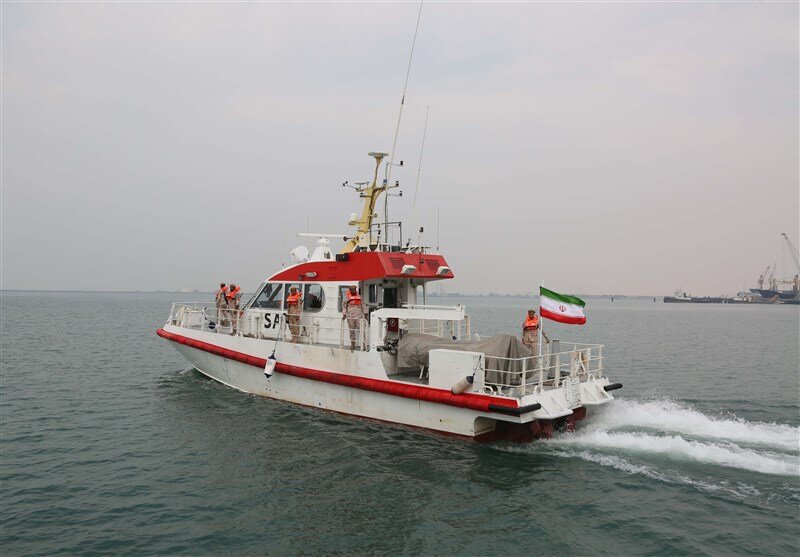Defense Ministry delivers indigenous vessel to police

TEHRAN – The Defense Ministry has started delivering domestically-made Haidar-class patrol boats to police forces operating in the Persian Gulf waters.
The frigates, mainly tasked with search and rescue missions, joined the marine police fleet during a ceremony in southern port city of Bandar Abbas on Monday, after successfully passing sea and shore-based trials, according to Press TV.
The Haidar-class vessels are made of marine grade aluminum alloy hulls, which gives them high hydro-dynamic capabilities and lets them withstand powerful sea storms. They are also built around the latest Search and Rescue (SAR) concepts. The self-righting features of the vessels mean they can stay afloat even at high rolling angles of up to 180 degrees.
Beside search and rescue missions, the frigates will patrol Iran’s territorial waters to ensure their safety.
Defense Minister Brigadier General Amir Hatami, Managing Director of Defense Ministry's Marine Industries Organization Rear Admiral Amir Rastegari and Police Chief Brigadier General Hossein Ashtari were present at the ceremony.
Addressing the event, the defense chief said Haidar-class vessels were highly maneuverable in all weather conditions and could be used as the basis for other projects such as marine ambulances and fireboats.
They can also be used for military purposes as well as coast guard and anti-smuggling missions.
Over the past years, Iran has made major breakthroughs in its defense sector and attained self-sufficiency in producing military equipment and hardware despite facing sanctions and Western economic pressure.
The Islamic Republic says its military power is solely for defensive purposes and does not pose any threat to other countries.
The delivering of the boats came a day after Iran announced it was considering tolls on vessels that pass the strategic Strait of Hormuz in the Persian Gulf, where the country’s forces watch over their safety.
MP Amir Hossein Ghazizadeh Hashemi on Sunday highlighted that the parliament bill to charge foreign ships passing through the narrow waterway which accommodates around a third of global seaborne oil traffic is meant to reciprocate hostile actions by the United States and its allies in the region.
“If Iran is the real guarantor (of security) in the region and in international waters, then the Majlis believes that commercial hubs and all ships in the region should pay the cost in the form of tolls based on the international norms and (due to conducts of) the United States,” he said in an interview with the Sobhe No newspaper.
The lawmaker said the bill has yet to be approved for an official debate in the parliament, saying it had raised objections from political forces who seek “normalization for Iran” and believe Tehran should maintain the status quo in the Parisian Gulf.
Ghazizadeh said that Iran could introduce its own preferential charging mechanism for ships passing through the Strait of Hormuz.
“Since the bill is based on our country’s internal laws, (the toll) could be levied on unfriendly countries, meaning those who have no trade relations with us and have recognized America’s sanctions (against Iran),” he said.
Iran controls much of the northern part of the Strait of Hormuz as it is situated within the country’s territorial waters.
The waterway and the wider Persian Gulf region has been the scene of some unprecedented tensions between Iran and the U.S. over the past months. The tensions escalated on June 21 when Iran shot down an intruding U.S. spy drone.
SP/PA

Leave a Comment